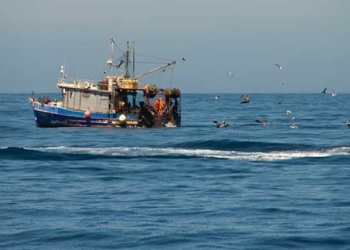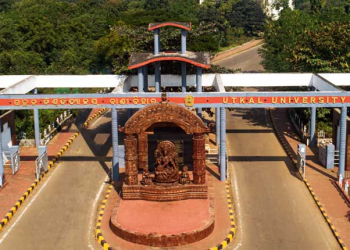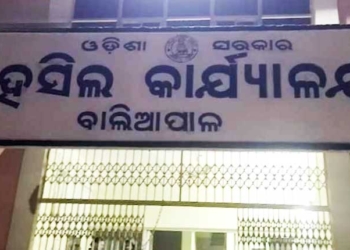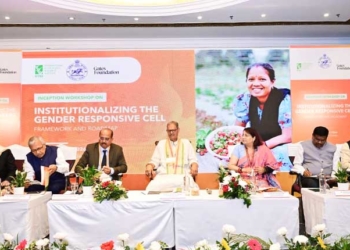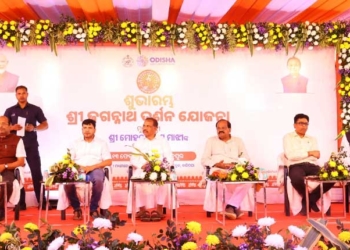Bhubaneswar: Raising concerns over the safety of children, the Odisha State Commission for Protection of Child Rights (OSCPCR) has issued certain directives regarding the safety of children and adolescents in entertainment industry.
“It has come to the notice of the Commission that there are growing incidences of engaging children and adolescents in the entertainment industry and commercial entertainment activities, especially in television, cinema, Jatras and live theatres posing threat to the protection of rights of those children. In consonance of the existing Acts and Rules, the Commission issued a detailed advisory for the safety and security of children and adolescents engaged in the entertainment sector,” said the OSCPCR in its direcetives.
The major directives are—-
- Any TV/film producer, Jatra party owner requiring a child’s participation must first obtain permission from the Collector of the district where the activity will take place. They must provide the District Magistrate with an undertaking in Form C (as per the Child Labour (Prohibition and Regulation) Amendment Rules, 2017), a list of child participants, parental or guardian consent and the name of the person responsible for the child’s safety and security. (Section 17A of the Child and Adolescent Labour Act, 1986 and Rule 2C of the Child and Adolescent Labour Rules, 2017.)
- For live shows, there must be an announcement specifying that all necessary measures are taken to ensure no child was abused, neglected, or exploited during the performance or shooting. There should be a disclaimer be displayed at the beginning of films, each episode of TV serials, reality shows, or content on social media platforms.
- The District Magistrate may instruct the District Child Protection Unit (DCPU) to inspect the workplace and issue a permit to the producer, Jatra party, or theatre owner accordingly.
- After issuing the permit, the District Magistrate will instruct the DCPU to inform and provide a list of the children engaged as child artistes to the concerned Child Welfare Committee and the Labour Inspector of the district. These provisions include ensuring facilities for the child’s physical and mental health, timely nutritional diet, safe and clean shelter with necessary daily provisions, and compliance with all applicable laws protecting children’s rights to education, care, protection and protection against sexual offences.
- No child or adolescent should be cast in a role or situation likely to cause unnecessary mental or physical suffering.
- No child or adolescent should be exposed to ridicule, insult, discouragement, harsh comments, or any behavior that could affect their emotional health.
- No child or adolescent should be given alcohol or any other substance, nor be made to use cigarettes, beedi, or tobacco substances, even if portraying a scene where the child is under the influence of such substances.
- No child or adolescent should be involved in any situation involving indecent or obscene representation, nudity (of themselves or others), or sexual acts, real or simulated. No child should be made to exhibit their body or any part of it in a way that it is seen by others.
- In programmes based on sensitive content such as child or adolescent abuse and exploitation, the content should be handled with care and sensitivity. Children/adolescents are made to act should not harm or risk their welfare.
- No child or adolescent shall be forced to participate in any audiovisual, sports, or informal entertainment activity against their will and consent.
- No child or adolescent shall be involved in the creation of content that is deemed unsuitable or not certified for their age group.
- Presence of Parent/Guardian: a) If the child is under 6 years old, at least one parent or legal guardian must be present at all times b)lf the child is over 6 years old, at least one parent, legal guardian or a known person must be present at all times.
- Infants under 3 months old may not participate in shows except for programmes promoting breast feeding or immunization. When using an infant under 3months for any scene, utmost care must be taken by those handling the child, and a parent or guardian must be present.
- If an infant is allowed to participate for more than one hour in a single day, a registered nurse or midwife must be present at all times along with the parent or legal guardian. • A responsible person must be appointed by the producer for every five children in the production or event to ensure their protection, care, and best interests.
- Travel arrangements must be made for the child, and no child should travel without their parent, legal guardian, or a known person.
- All production units and Jatra parties must develop guidelines for dealing with children/adolescents on set. These guidelines should include general principles, procedures for obtaining parental consent, best practices, staff protocols for engagement, and a child/adolescent protection policy.
- Minors, especially those under 6years old, must not be exposed to harmful lighting or irritating or contaminated cosmetics.
- Producers and Jatra party owners must ensure that children/adolescents receive adequate and nutritious food and water during the shooting and live performance. • Recreational materials and rest facilities must be available on set, appropriate to the age and needs of each child/adolescent.
- No child shall work more than five hours a day, and no more than three hours without a break. • No child/adolescent shall be made to enter into an agreement requiring them to work or render services as bonded labourers under the Bonded Labour System (Abolition) Act,1976, or which they cannot terminate.
- Producers, Jatra party owners must ensure compliance with Section 3 of the Child Labour Act-1986 and schedule activities like shooting, auditions, and travel in a manner that does not hinder the child/adolescent’s education. Priority should be given to the child’s/adolescent’s class and exam schedules to ensure their education continues uninterrupted.





